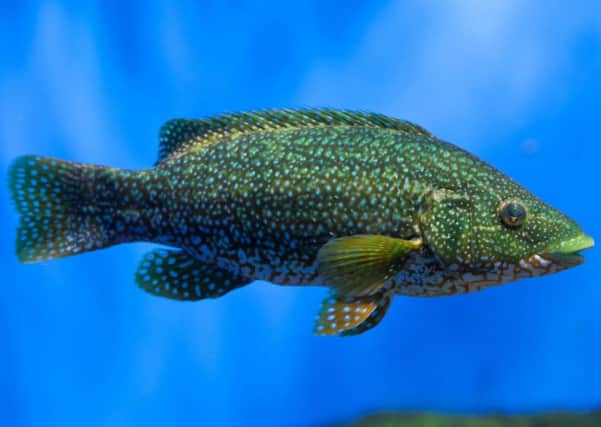Ilona Amos: Fish farms are catching other fish to clean their salmon


The measures, which are voluntary for the time being, will set out minimum and maximum sizes of fish allowed to be caught, requirements to record catches, type of traps that can be used, limits on time spent at sea fishing, and provision for particular sites to be closed to fishing during spawning periods.
Wrasse are not traditionally caught for the table, but a lucrative commercial fishery has sprung up in the past few years due to huge demand from salmon farms. The idea is the fish will naturally graze sea lice from the skin of affected salmon, reducing the need for the toxic chemicals, potentially harmful ‘thermal dousing’ and bleach treatments that are currently used to combat infestations.
Advertisement
Hide AdAdvertisement
Hide AdBut concerns have been raised that the high prices and burgeoning market for wrasse will result in decimation of wild populations.
Up until now, there have been no controls on the fishery in Scotland and the number of fish being caught is, at best, a guess. There are ongoing efforts to farm wrasse, but these have had limited success and come nowhere near the production levels required – one cleaner fish is used for every 25 salmon in a cage.
What figures there are suggest 75,000 wrasse were farmed in Scotland in 2015, jumping to 118,000 the following year – along with 262,000 lumpfish, another cleaner species. But the Scottish Government admitted that 1.5 million cleaner fish were used for this purpose in 2016, suggesting most were sourced from the wild.
Controls are needed, but the new guidelines have been criticised for being too little too late. Sustainable fisheries campaigners say ministers are failing in their duty to protect fish stocks. Phil Taylor, head of policy and operations at Open Seas, said: “The horse has bolted, yet the government still seems to think it’s worth asking the horse to close its own stable door. These measures are long overdue and still inadequate.”
I’m inclined to agree. If we don’t know how many fish there are in the sea, nor how many are being taken out, how can we set a reasonable quota for harvesting? We need reliable surveys to tell us the present state of stocks, and controls should be mandatory.
Fish-farming began here in the 1970s, and is considered a major success story. Scotland is now the leading producer of farmed fish in the EU, and third in the world. The sector is worth around £1.8 billion annually and provides jobs in rural areas. Farmed salmon is our top food export, with an international reputation for high quality. So it’s hardly surprising ministers aim to double production to around 350,000 tonnes a year by 2030.
But the industry is now a victim of its own success. Environmentalists believe open-water farms are responsible for massive declines in wild salmon and sea trout.
An inquiry into the impacts of aquaculture is currently under way at Holyrood, where economy minister Fergus Ewing is due to give evidence tomorrow. At the same time, a petition with more than 41,000 signatures – calling for regular testing of waste water from salmon farms – is being presented.
Whatever the outcome, one thing seems clear – the fish-farming industry must clean up its act if Scotland is to keep its status and remain a global leader in the sector.
